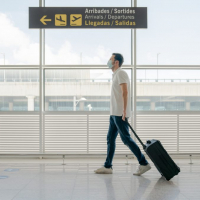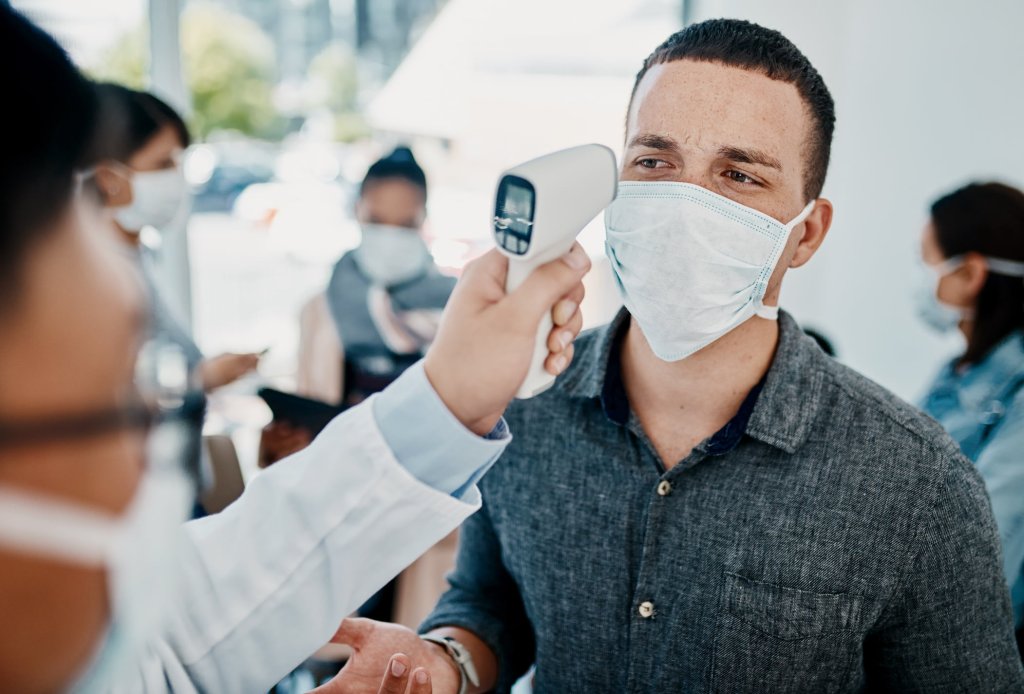
Travel-related measures for controlling the spread of COVID-19: new Cochrane evidence
BY SARAH CHAPMAN SEPTEMBER 21, 2020 //
In this blog, Sarah Chapman looks at a new Cochrane rapid review with evidence on the effectiveness of travel-related measures to contain the COVID-19 pandemic.
Is anyone else wondering what we did before the pandemic? It’s all taking on a bit of a dream-like quality for me. One of the things many of us did was travel beyond our own borders. In the early weeks of lockdown, I binge-watched the two series of ‘Race Across The World’. Seeing people dashing about across the globe, mixing (mixing!) with other people, sitting in bars and on trains, already seemed extraordinary. Freedoms lost to us, for the time being anyway. I moved on to watching Simon Reeve explore Russia, with fewer people and a lot of snow and trees, a glimpse of the wide open spaces I was craving.
With the lifting of many restrictions in the summer, we emerged blinking into the sunlight, perhaps thinking of venturing beyond our home countries. But international travel, like so much else, is different now, and not just because we’re wearing face masks on trains and planes. Quarantine rules for travellers, subject to rapid change, have been frequently in the news. Of course there are other travel-related measures in place too, intended to help reduce the spread of COVID-19, such as restrictions on travellers from specific countries and screening for symptoms that might indicate COVID-19 infection. But what do we know about the impact of these measures?

What do we know about the impact of travel-related measures for controlling the spread of COVID-19?
A need for evidence on travel-related measures
In response to an urgent need to understand their effectiveness, a Cochrane rapid review has searched for evidence on travel -related control measures to contain the COVID-19 pandemic. This review is one of several simplified systematic reviews that have been done quickly to produce timely evidence for decision-making during the pandemic. As well as studies on COVID-19, the review authors also looked for indirect evidence from studies of travel-related measures during outbreaks of severe acute respiratory syndrome (SARS) andMiddle East respiratory syndrome (MERS). The review includes 36 studies. 25 studies were on COVID-19, the rest on SARS and (one study) SARS and MERS.
How reliable is the evidence?
The authors had a number of concerns about the studies. There is a lack of ‘real-life’ evidence, with much of the evidence coming from modelling studies. The studies varied in many respects, from the methods used to where they were carried out and the sort of measures they looked at. The review authors assessed the certainty of the evidence as low or very low, so the true effects of the travel-related measures investigated may be very different. The evidence thus far suggests trends rather than giving results in which we can have confidence.
Here’s what they found:
- Travel restrictions implemented at the beginning of an outbreak may limit the spread of disease across national borders (based on very low-certainty evidence from modelling studies).
- The effectiveness of quarantine of travellers as a single measure is uncertain.
- Screening travellers for symptoms on entry/exit is not likely to be effective on its own in detecting enough people with COVID-19 to reduce the spread of disease within a protected region.
- A combination of symptom screening followed by quarantine, observation and PCR testing is likely to be more effective.
The review authors also note that the contribution of travel-related measures in controlling the pandemic is likely to vary depending on the number and types of other measures that are put in place. In the video below, lead author of the review Jacob Burns (Ludwig-Maximilians-University, Munich, Germany) talks about COVID-19 as a moving target. He says that where a country is in the progression of the pandemic will be an important factor in the effectiveness of travel-related measures, but this is something few studies reported on, nor investigated the role of timing in their effectiveness. He expresses a hope that when they update the review in the near future, there will be high quality evidence to include. He would like to see good evidence that addresses important questions such as ‘how can travel-related control measures contribute to avoiding a second wave of infections?’
We’ll be sure to update this blog when the review is updated. You can keep up with the evidence and related resources in this blog on Cochrane evidence on COVID-19: a round-up.

